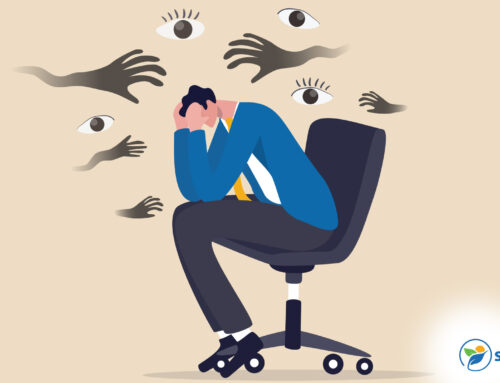Has life lost its color, leaving you feeling detached and disinterested in everything you once enjoyed? If so, you’re not alone. Approximately 35% of individuals experience what is known as subclinical apathy: feelings of disinterest that are not overtly severe but undeniably present.
Through this article, we aim to shed light on the phenomenon of losing interest in day-to-day activities, provide insights into possible causes and look at ways to move forward. Keep in mind that plenty of people experience this sort of emotional decline, and no matter how you feel now, there’s always hope for recovery.
Read on for everything you need to know about overcoming apathy.
Recognizing and Understanding Loss of Interest
When we start to lose interest in things we once loved, it’s important to examine where these feelings might stem from. Two closely related concepts might explain such emotions: apathy and anhedonia.
Apathy refers to a general lack of motivation, enthusiasm or interest in activities that were once enjoyable. It’s usually characterized by emotional indifference and difficulty initiating and completing tasks.
On the other hand, anhedonia is specific to the inability to experience pleasure, feel a sense of reward or derive joy from hobbies, events or social interactions that we usually find enjoyable. Anhedonia is an often overlooked and under-discussed symptom that’s actually quite common.
Anhedonia’s effects appear as follows:
- A waning interest in physical intimacy
- A downward shift in motivation
- A silent retreat from social interactions or relationships
- An almost invisible emotional response
Both apathy and anhedonia are features often seen in mental health disorders like major depressive disorder and may become intrusive in a person’s life.
If you find yourself trapped beneath the overwhelming weight of disinterest, we encourage you to reach out for help. A mental health professional can help you identify possible causes and suggest suitable therapeutic interventions.
Coping Strategies for Apathy and Lack of Motivation
When you’re feeling down, it’s easy to want to just sit around and do nothing. But if you’re struggling with apathy, dealing with lack of motivation or depression, sitting might actually make things worse.
The more you sit around without doing anything, the more likely you are to fall deeper into the hole of depression and apathy. Unfortunately, when dealing with lack of motivation, most people don’t know what to do or where to start. That’s why we’ve compiled these loss of interest coping strategies.
1. Taking Personalized Action
Have you been wanting to try gardening? Maybe order that painting kit? Or perhaps it’s time to reconnect with that high school buddy you haven’t heard from in ages. Personalized action could be your first step towards rediscovering interests or kindling new ones. Shaking up your routine and exploring new horizons might be the kick-start you need — the best remedy is what works best for you.
2. Getting Professional Help
You don’t have to deal with these feelings alone. There’s strength in reaching out when things get tough, and therapists, counselors and mental health professionals are willing to meet you where you are. They carry a map of the emotional maze you might be lost in and can guide you out. Seeking help doesn’t make us weak — it’s a demonstration of the willpower to prioritize our well-being.
3. Using Supporting Resources
We’re fortunate to live in an age where self-help has grown beyond just books. You’ve got an entire virtual world rich with blogs that relate life stories and online communities that connect with each other over shared experiences. These resources can be a valuable source of kinship, making you feel less isolated and more empowered.
4. Exercise Patience and Persistence
We often forget that changes, especially psychological ones, aren’t instantaneous. Healing, rediscovering joy and recovering will take time and patience. Rome wasn’t built in a day, so don’t expect the same from yourself. Acknowledge that it’s okay to have good days, not-so-good days and downright hard days. Be patient with yourself and remember to celebrate the small victories along the way.
Reconnecting With Passion and Purpose
Remember, beyond the coping strategies discussed, you can build a powerful toolbox filled with methods for self-care and mindfulness. These practices can not only help combat your loss of interest but also ignite your sense of passion and purpose.
Here are a few recommendations:
- Practice gratitude. Maintaining a gratitude journal might sound old-school, but it’s an effective tool to recognize the many positives that surround us. Write down what you’re grateful for each day. Whether it’s a loved one, a kind pet or a peaceful morning coffee, acknowledging these can shift your focus from gloomy moments to uplifting ones.
- Keep your social circle close. Social interaction is an instant mood-lifter. Make it a point to connect with friends or family, be it in-person or virtually. Plan that Netflix watch party or group gaming session. Share your experiences, relive old memories and create new ones.
- Try mindfulness techniques. Mindfulness can enhance awareness and keep you anchored in the present moment. A simple way to begin is with mindfulness meditation or deep breathing exercises where you focus on your breath, shutting out the external world and centering yourself.
- Visualize the positives. Positive visualization is another mindfulness technique to train your brain. Close your eyes and think of a happy memory or a dream vacation spot. Whenever you start feeling negative, use this image to spark positive emotions instead.
- Embrace mindful movement. Are traditional mindfulness practices not your thing? Try out what’s known as “mindful movement.” This can be a peaceful solo walk, doing yoga or even swimming. The key is to fully soak in the experience, paying attention to how your body feels with each step or stroke.
These aren’t one-size-fits-all solutions. If one doesn’t click, move on to the next. The key is to remain patient and keep experimenting until you find what works for you.
Seeking Support for Persistent Apathy
When you feel like the world is closing in on you and your mood and motivation are at an all-time low, it can be hard to know where to turn. If you or your loved one is wrestling with mental health and a loss of joy, know that seeking help is an important and courageous first step.
Sunlight Recovery is here with a helping hand. We’re dedicated to providing specialized, holistic care for behavioral health issues, including persistent apathy. You’ll find our comprehensive treatment methods, coupled with an empathetic and experienced team, provide a supportive and effective environment for healing.
Anything worthwhile takes time, and overcoming apathy is no exception. Reach out to Sunlight Recovery to chart a course toward reclaiming your joy and enthusiasm for life.






